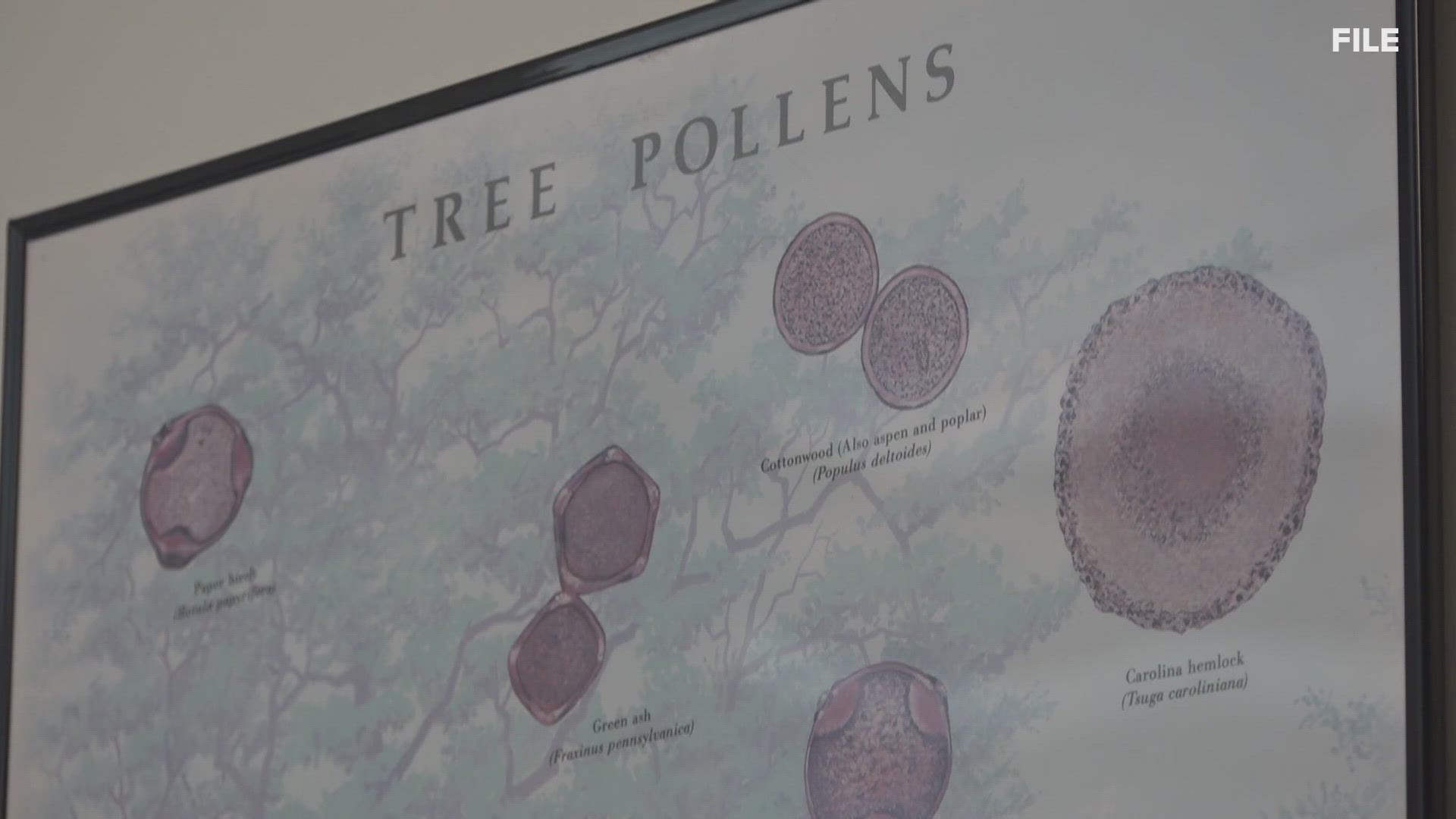ST. LOUIS — You may be cheering on the warm weather, but your sinuses are not. Rising temperatures mean trees are getting the cue to release pollen.
Dr. Jennifer Monroy is a Washington University board-certified allergist and immunologist at Barnes-Jewish Hospital.
"We tell our patients to come in and see us around February, for those that do notice earlier spring season," Monroy said. "Around Feb. 14, so Valentine's Day is probably a good time to start monitoring what is out in the air and starting some of their medications to help treat for their spring allergy season."
Monroy said cedar pollen has already been detected in our area, and that is about two weeks earlier than usual.
She said certain trees will pollinate early if there is warm weather. Those trees are cedar, juniper, maple and elm trees. Pollen counts in trees will rise on "a nice warm day with a lot of wind," Monroy said.
"The bulk of the spring pollen that we do see with the higher numbers and the higher count does end up occurring more towards the end of April and the beginning of May, when a lot of the trees start to pollinate," Monroy explained. She said primarily oak is a late April or early May allergen.
Rain, especially heavy rain, can trigger allergies and asthma because allergens are caught in raindrops.
"The pollen catches on to the raindrops as they fall to the ground," Monroy explained, "and it causes this increase in exposure and can lead to worsening asthma symptoms. And so the following several days, there's an uptick in ER visits, urgent care visits, and primary care visits for individuals suffering from asthma because they get an asthma exacerbation.
There is an upside to allergens getting caught in the rain.
"It really washes out a lot of the pollen count, so people do feel better most of the time after rain," Monroy encouraged.

